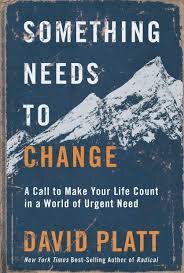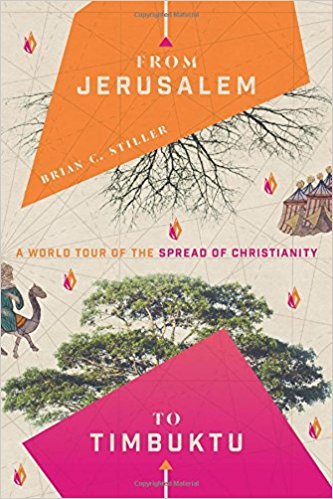A Company of Heroes - A Review
In the week to week grind, it’s easy to lose sight of the big picture and to forget that there are bigger things than the overdue report, looming deadline, or potential future promotion. There is a kingdom being illuminated by salt of the earth servants of the one true God who will return someday to restore the whole creation and shine his glory through the whole world. It’s easy to forget that grand reality because the inane, normal, and immanent demands blot out the grandeur of God’s ineffable splendor through the tyranny of the urgent.
Tim Keesee’s book, A Company of Heroes is a reminder that that the kingdom is coming, that the daily grind can have great meaning, and that God is on the move throughout the world. Keesee’s 2014 book, Dispatches from the Front emphasized the work being done in frontline locations throughout the world. It contains snippets that will encourage and it is worth picking up for its own goodness. When I picked up the 2019 book, A Company of Heroes, I expected more of the same. This book, however, is different. And because it is different it is in a way much more powerful and encouraging. While Dispatches from the Front focused on what God is doing in hard places, A Company of Heroes emphasizes what God is doing through ordinary people in both exceptionally difficult circumstances and simply through persistent faithfulness by his people in “ordinary” places.
The book covers the ministries of twenty people. It’s a mix of the living and the dead, the great and the small, those serving in critical ministries and those faithful in banal ones. For example, there is a chapter on Samuel Zwemer who gave his life on mission in the Middle East around a century ago. There is another chapter on Danny Brooks, whose name you likely have never heard, but who heeded the call of God, moved his family, and planted a church in Salt Lake City Utah. The end of his story is unknown, but his family is part of a pattern of sacrificial living that demonstrates the overwhelming value of the glory of God.
There are other stories that encourage deep obedience to the call of Christ. There are reminders throughout, as John Piper is quoted in the book saying, “America isn’t a safe place for children, if going to hell is your biggest concern.” Physical safety may not be the key criteria by which we should evaluate our opportunities in life. As we take up our cross and follow Christ, we may literally die and that may be exactly the right thing for us. This book does not offer a secret recipe for being more on fire for Christ, but it does provide repeated examples of living all out for the kingdom of God.
We need more books like this. Books that show simple faithfulness of the common person. We need books that tell stories in snippets that can be digested that take missions, service, and living in hard places from extraordinary tales to ordinary realities.
A Company of Heroes is the sort of volume that should be in many Christian homes, read aloud by families, included in homeschool curricula, on the shelves at church, and wherever people that need to learn to live faithfully can get access to it. May Tim Keesee’s tribe increase, as well the tribe of people like those whose stories he captures.































There’s no reason to doubt that Jesus was nailed to the cross. Ultimately, I trust what Scripture says about Jesus’s crucifixion because I also trust what it says about his resurrection. And that’s what we should be celebrating this week.